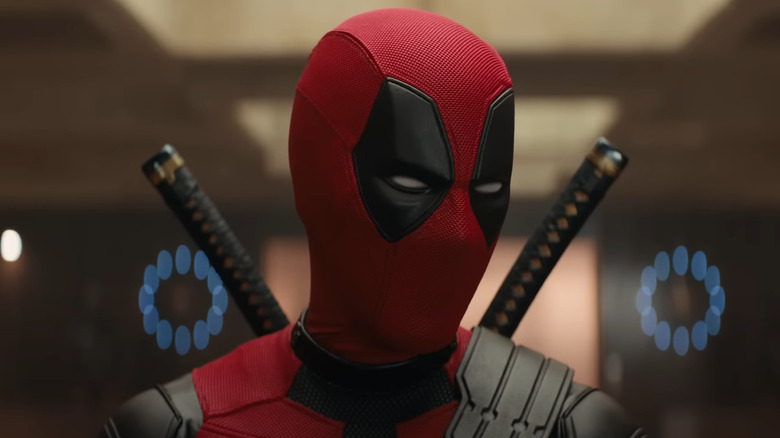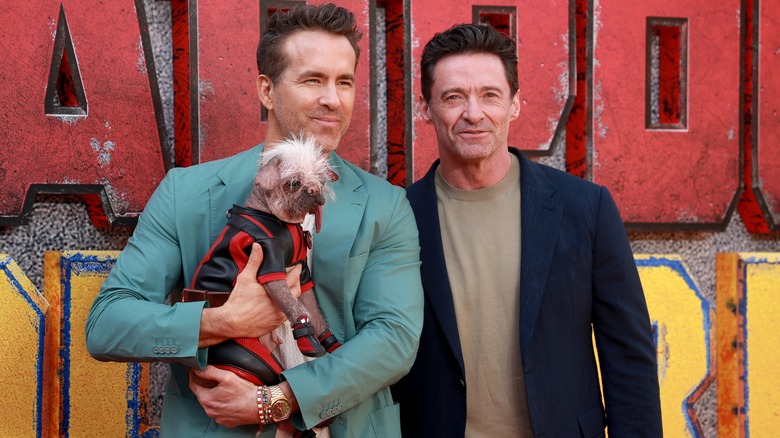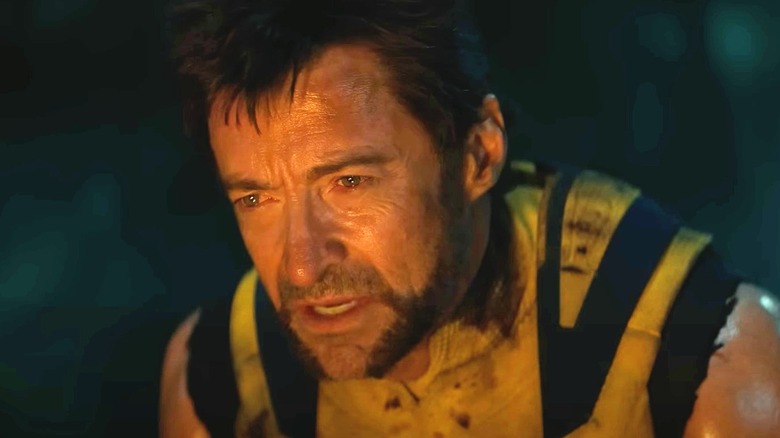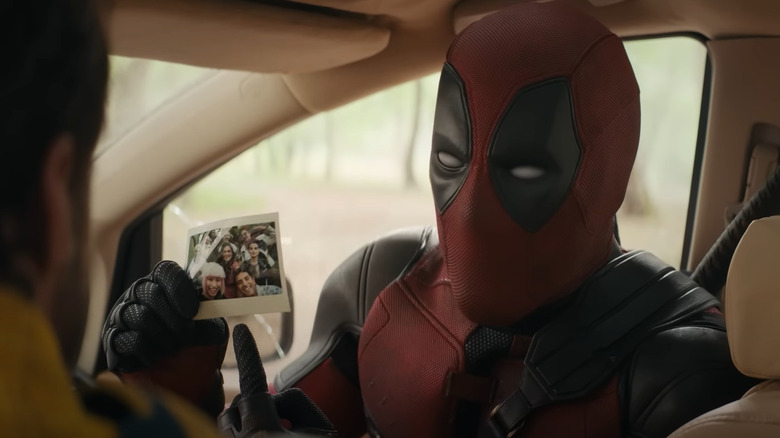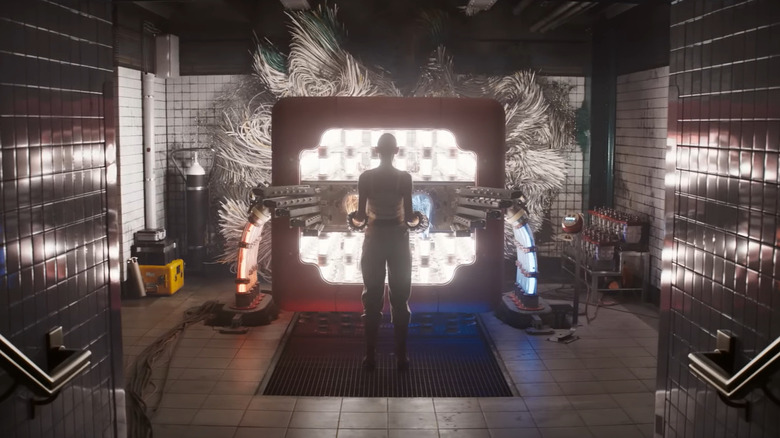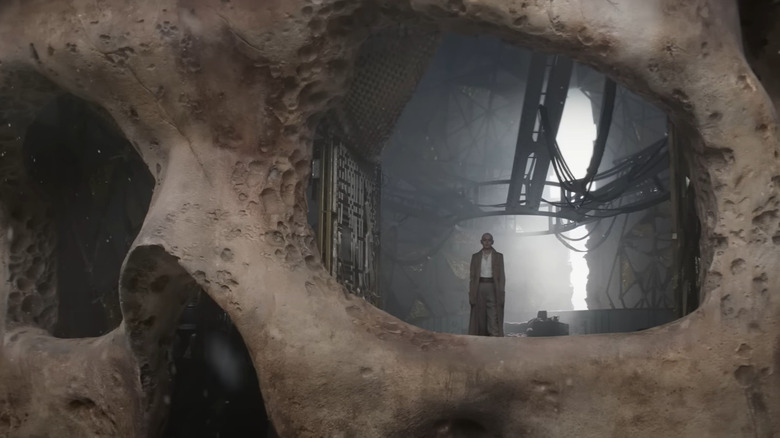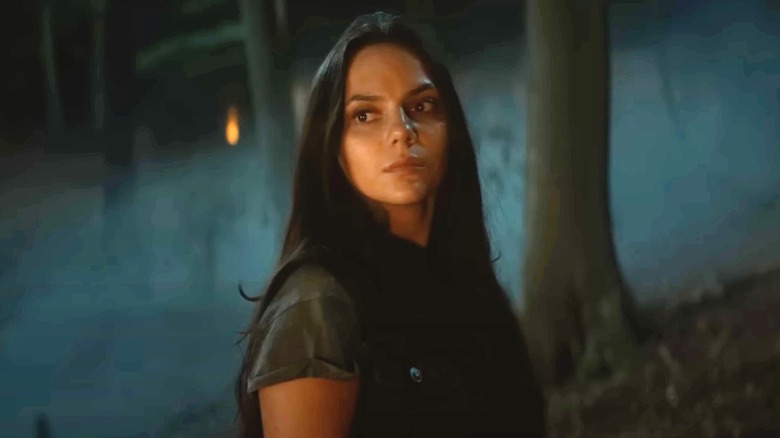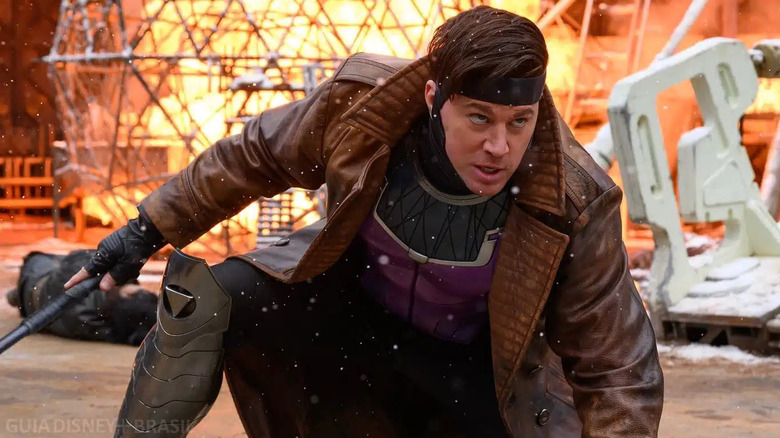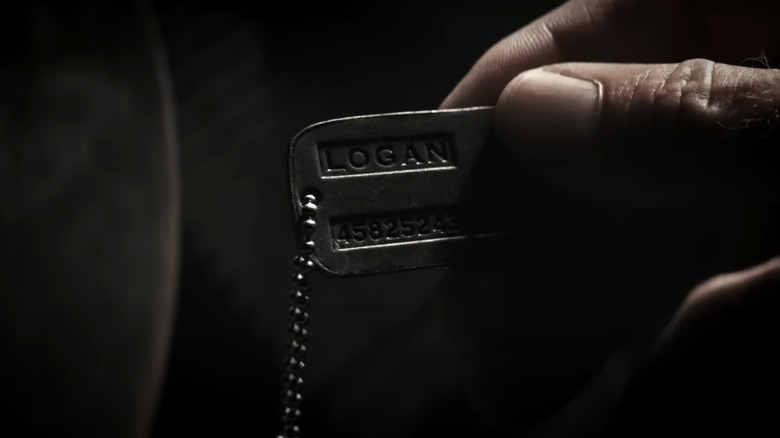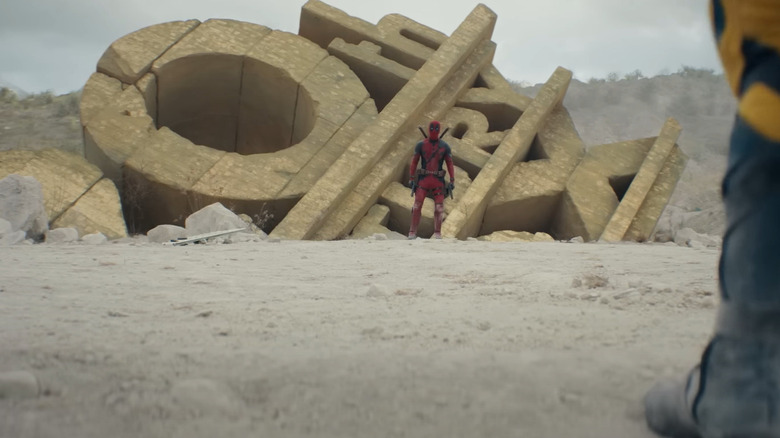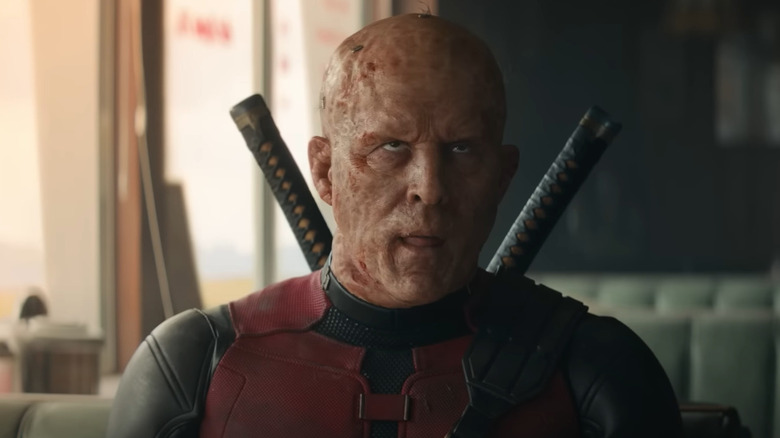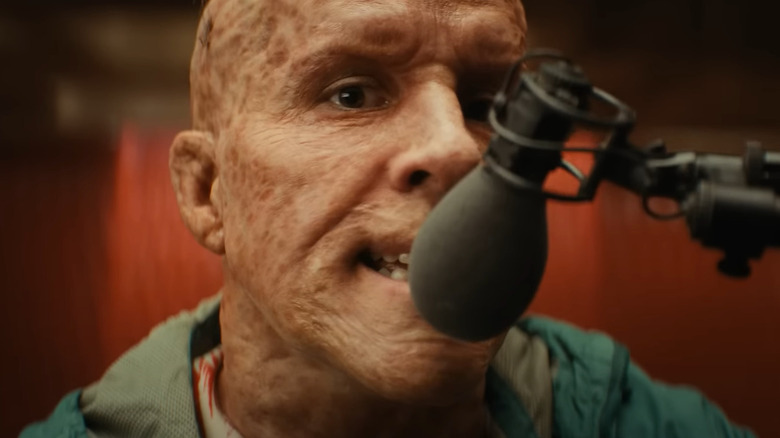10 Lessons That Marvel Should Learn From Deadpool & Wolverine
"Deadpool & Wolverine" has been slashing expectations since its release, proving itself as a solid entry in the Marvel Cinematic Universe and blowing everyone away at the box office. Both critically and financially, it has already delivered a massive win for Marvel Studios during a slump that has shaken public confidence in the franchise and the comic book movie genre as a whole.
As of this writing, the MCU is more than halfway through Phase 5, which began in 2023 with "Ant-Man and the Wasp: Quantumania," an unmitigated disaster of a sequel seemingly meant to launch the Multiverse Saga in earnest — particularly by formally introducing overarching villain Kang the Conqueror, a highly anticipated and teased character brought to life by Jonathan Majors, mere months before both he and Kang were dropped by the studio. And though "Guardians of the Galaxy Vol. 3" renewed some faith in Marvel's ability to capture the same energy of its earlier work — albeit under the direction of James Gunn, who has departed the MCU to reboot the DC Universe with Peter Safran — "The Marvels" ended the year by bombing at the box office.
This is all to say that, while Ryan Reynolds and Hugh Jackman have once again proven the superhero genre has life in it still, we can't say for sure the MCU is headed in the right direction. For that to be true, the studio will need to stomach some tough lessons, learning from the successes and missteps of "Deadpool & Wolverine."
There's no replacing star power
As actors across the country proved during the 2023 SAG-AFTRA strike, there's just no replacing them when it comes to promotional firepower. This is especially true for the MCU, a franchise that relies on the audience investing emotional energy into the cast for years at a time.
Both the studio and its ensemble arguably got spoiled during the MCU's golden years. Whether you were one of the founding Avengers like Robert Downey Jr., a passionate newcomer like Tom Holland, or simply an actor taking on this job like you would any other, franchise goodwill was such that the job of promoting these films essentially boiled down to getting cheered at and creating viral moments on late night television. This isn't to minimize the time and effort the actors spent getting the word out about these movies, but to emphasize how positively charged the fan base was leading up to "Avengers: Endgame." With a clear narrative and fewer films to keep track of, the Infinity Saga built a fanbase that was so focused and engaged that they needed little selling from actors.
The opposite is true now, as a deluge of middling Marvel content has numbed viewers to the point that these promotional tours matter more than ever. Ryan Reynolds and Hugh Jackman rose to the challenge, throwing their full weight behind the marketing campaign (which Reynolds personally helped shape). Going forward, Marvel doesn't just need big names — they need fully committed promotional partners.
The focus needs to return to story
While it's true that Ryan Reynolds and Hugh Jackman are nearly irreplaceable as headline stars for a Marvel movie, they also threaten to mask one of the biggest issues with "Deadpool & Wolverine" — its story. The duo are mostly able to make the film work as a broad action-comedy that is meant to be enjoyed with minimal mental effort — the sort of film that effortlessly deflects any and all criticism with the response, "You're thinking about it too hard." But, as the MCU itself once appeared to believe, even movies about super people in Halloween costumes can tell stories that are exciting, thematically sound, and potentially even challenging.
Despite the generally warm reception of "Deadpool & Wolverine," critics have almost universally taken issue with the film's script, which prioritizes cameos, action set pieces, and Deadpool's meta-comedy over meaningful character arcs or dramatic ideas. This might be small potatoes for many viewers, as the Merc with a Mouth admittedly thrives in such a narratively weightless environment.
But what should ring alarm bells for Marvel is how this approach affects non-Deadpool characters, Wolverine in particular. Without real drama to engage with, he feels aimless and vague in the same way Paul Rudd's Scott Lang and Brie Larson's Carol Danvers did in their respective films. In other words, "Deadpool & Wolverine" is consistent in maintaining the MCU's post-"Endgame" story problems, and an immediate shift in storytelling philosophy is necessary in order for the franchise to move forward.
Superhero supporting casts work
Part of what makes "Deadpool & Wolverine" unique in the superhero landscape is that the cast is actually packed with superheroes. Since before the MCU was even a thought, the casting formula (with some exceptions) has seemed to be to include as few costumed characters as possible in any given film — one superhero, one supervillain, that's it. The rest of the cast is usually filled out by deliberately normal supporting stock characters such as a love interest, a best friend, and/or some sort of shady scientific or governmental authority that serves as a secondary antagonist. The characters are rarely interesting unless functioning as a vessel for comic relief — but even then, these normal characters can only do so much in a genre meant to explore the extra-normal.
There are a lot of factors that decide which superheroes appear in a given Marvel film, with constraints ranging widely in nature from logistical to legal to creative. To that last constraint, it's easy to imagine a writer, producer, or director worrying that including too many costumed characters will impede the emotional credibility of the story, whereas normal, relatable humans will have the opposite effect. But as "Deadpool & Wolverine" shows — at least in certain, triumphant moments where it takes its story seriously — these movies need only to paint these characters as relatable for us to empathize with them.
Make the TV shows matter
The Disney+ MCU projects have the same major problem that the Netflix series once did — they don't feel like they actually matter. Despite involving characters who could or already do play a major role in the shared universe's storyline, these TV shows' plots feel isolated from everything else going on to the point that they feel like thankless homework assignments given to fans by Marvel during the off-season to keep them engaged.
Even shows like "Loki" and "WandaVision" — both of which had clear theatrical tie-in opportunities — arguably feel unnecessary to the respective plots of "Ant-Man and the Wasp: Quantumania" or "Doctor Strange in the Multiverse of Madness." This isn't to say that Disney or Marvel should alienate those that don't watch the TV shows, but instead take greater effort in rewarding those who do.
To its credit, "Deadpool & Wolverine" features perhaps the most direct crossover with a Marvel series (apart from "The Marvels"). By centering its plot around the Time Variance Authority — a massive piece of MCU world-building mostly avoided by other projects — the film is able to make "Loki" feel more consequential, which in turn makes the universe itself more tangible than it has been since "Endgame."
Technical designers make or break these movies
"Deadpool & Wolverine" deserves high praise for having some of the most memorable set pieces of any Marvel film since "Avengers: Endgame." Locales like the TVA's orange-saturated offices and the Void's various structures create distinct images that not only capture viewers' imaginations for a longer period of time (than, say, a vague CGI background), but affirm "Deadpool & Wolverine" as a superhero movie separate from more a generic action or sci-fi movie.
Ray Chan served as the film's production designer, having previously done so on "The Falcon and the Winter Soldier" and "Dungeons and Dragons: Honor Among Thieves," in addition to serving as the art director for the last three Avengers films. Tragically, Chan passed away a few months before the release of "Deadpool & Wolverine." In a statement, Ryan Reynolds wrote that Chan "was as valuable a creative force on 'Deadpool & Wolverine' as the writers, director and stars," (via Deadline).
In making the film feel like a living, breathing comic book, Chan was helped by costume designers Graham Churchyard and Mayes C. Rubeo (who brought the titular characters' new comics-accurate costumes to life in vibrant fashion), a massive stunt team that included Hugh Jackman's longtime stunt double Daniel Stevens, and the 500-plus-person visual effects team. These artists often go overlooked after a film is released, despite the fact that — in the case of "Deadpool & Wolverine" — it would be a significantly worse movie had these departments not given it their all.
Don't spoil the movie in the trailers
By now, it's safe to say that all the cats are out of all the bags regarding the many cameos in "Deadpool & Wolverine." Ryan Reynolds waited barely a week after the film's release to begin posting individual public thank you notes to the film's most shocking contributors (some of whom we'll discuss at length further down) for his 54 million Instagram followers.
As fans have discussed in the comments of these and similar posts, it can be disappointing to have these surprises spoiled before you get a chance to see the movie in question. It's even more frustrating when the film chooses to spoil a major reveal before anyone has had a chance to experience the moment as intended. Such was the case when Marvel made the decision to include footage of Dafne Keen's X-23 during the final pre-release marketing push. This move was so controversial that Marvel boss Kevin Feige felt compelled to explain it to the public, pinning it on Keen's desire to attend the premiere and the studio's desire to communicate an emotional core in the trailers.
For the latter point, the fact that there were no other ways to show the film's heart betrays the very story problems we already discussed. But more than that, it would've been far better for Keen to simply attend the premiere and allow organic buzz to radiate from her surprise showing. Instead, the studio robbed the film of arguably its only emotionally meaningful reveal.
People love Channing Tatum's Gambit
Of all the film's cameos, none have left as much of an impression on fans as Channing Tatum's Gambit. The "21 Jump Street" star had infamously been attached to the iconic X-Man for years, unsuccessfully trying to will a solo movie into existence much in the same way that Ryan Reynolds had for Deadpool.
But now that the character has been brought to the big screen in what seems to simultaneously be a piece of one-off stunt casting and a Hail Mary by Tatum and Reynolds to get "Gambit" made, Marvel has two options moving forward that they need to consider carefully. The first would obviously be to give into fan pressure and bring Tatum aboard as the MCU's Remy LeBeau — admittedly a tough sell, as its hard to imagine Kevin Feige or Marvel casting legend Sarah Halley Finn wanting to start their own X-Men line-up by inheriting a casting choice that (before the "Deadpool" hype) was largely considered questionable amongst fans.
That said, if the studio recasts him, they've unnecessarily created a situation where their choice will be endlessly compared to Tatum, likely unfairly. Similar to how fans were immediately so loyal to John Krasinski's cameo as Reed Richards that they rebelled against Pedro Pascal, Tatum will be held up as an unreachable standard that was never being seriously offered in the first place.
Fans aren't as protective as the studio thinks
When it was first announced that Hugh Jackman would reprise his X-Men role in "Deadpool & Wolverine," fans felt a mixture of excitement and anxiety. After all, his iteration of the character enjoyed perhaps the most poignant and successful send-off of any superhero character ever (it wasn't exactly a high bar to clear, but still). Director Shawn Levy essentially had to quell fans' fears personally, reassuring them over and over through interviews up until the film's release that it would not harm the character's legacy.
After seeing "Deadpool & Wolverine," however, the idea that Jackman donning the claws again would somehow take away from a film that came out several years ago may seem a tad silly, even if this had turned out to be the same version featured in "Logan." Realistically, even if "Deadpool & Wolverine" had been met with a harsh reception from fans, it wouldn't ruin any previous Jackman film — in fact, "Deadpool & Wolverine" arguably proves that fans aren't as precious about maintaining a sort of meta, behind-the-scenes continuity held together by non-narrative choices like consistent casting.
Even though Jackman only returned for a self-contained, comparatively inconsequential version of the character, fans were still excited to spend more time with him. This should open the door for more projects featuring returning faces from the MCU and beyond, hopefully in the service of telling more complex stories featuring them. At the same time, it indicates recasting either T'Challa or Kang could have been a viable option for the studio.
The mutants need a lot of work
Right away, we must acknowledge that we don't know yet what exact plans Marvel Studios has for bringing mutants to the MCU. We know that variants of familiar characters, styled closely after the comics and played by actors from the Fox era, have been cropping across the Multiverse in at least three seemingly unrelated instances ("Deadpool & Wolverine," "Doctor Strange in the Multiverse of Madness," and the post-credits sequence of "The Marvels").
For a franchise that at one point defined its identity by striving to build its universe of characters from the ground up, it's somewhat expected that Marvel will eventually recast the entirety of the X-Men to start their story from scratch. If this is still the goal, the backward-facing nostalgia for Fox's universe in "Deadpool & Wolverine" only widens the gap between these sporadic, somewhat aimless and vague mutant cameos and the studio actually defining the characters in their own terms.
On every level, from narrative and tone to simple visual aesthetics, Marvel Studios is still just keeping Fox on life support, perhaps unintentionally expanding the fan base for this universe. Even for those Marvel fans who weren't alive or old enough to enjoy the original X-Men films when they were first released (keeping in mind that most of today's middle and high schoolers were born after "X-Men Origins: Wolverine"), Marvel now has to reintroduce them to whatever their X-Men end up being. At this point, the studio will likely need an entire dedicated phase to successfully debut them in the MCU.
The Post-Endgame era is over
The most important takeaway for Marvel Studios after "Deadpool & Wolverine" is that the MCU's post-"Endgame" era needs to be finished. After raking in several billion dollars at the box office, the franchise reached peak cultural ubiquity (for better and for worse). The movies were no longer just popular blockbusters, but unmissable events.
In the midst of this creative and industrial dominance, Marvel's stories slowly shifted from the human-level drama that drove much of the Infinity Saga to massive celebrations for the fans. During the Infinity Saga, the MCU was defined by inviting jokes, a shared continuity, and serialized storytelling; during the Multiverse Saga, it has thus far been broadly defined by multiversal callbacks to other franchises, cameos, fan service, and safer, self-contained stories that one would expect from a comic book one-shot rather than an installment in a series of films.
It is a version of this franchise that needs to be retired — otherwise, "Deadpool & Wolverine" wouldn't be able to mine so much comedy by making fun of it. When a property reaches the levels of self-parody seen in this film, it's a sign that it's either on its last leg or in need of a major shift in direction.
How likely is the MCU to learn these lessons?
Truth be told, we're pretty sure Kevin Feige isn't reading our website for tips on how to run a multibillion dollar film studio he built, essentially, in a cave with a box of scraps. But there are actually signs already that he and his creative team are thinking along the same lines.
While the return of the Russo brothers and Robert Downey Jr. for the next two Avengers films made headlines, it's the return of writer Stephen McFeely that piques our interest here, as his MCU films are written very differently than those in the Multiverse Saga. His reunion with the Russos may lead to movies that feel more in line with the style of storytelling fans grew to love during the Infinity Saga. Upcoming projects like "Thunderbolts*" and "Captain America: Brave New World" also show the studio is interested in telling stories with closer connections to the TV shows, as well as with more superheroes and villains in the cast. And though "Captain America: Brave New World" showed Harrison Ford's Red Hulk in the trailers, merchandise planned for an earlier release date had already unavoidably spoiled his appearance — other than that, the film's plot remains largely under wraps.
In other words, it seems like Feige and co. are several steps ahead of us in terms of these necessary changes. As to whether they're effective in maintaining the momentum set by "Deadpool & Wolverine," we're gonna have to stick to educated wishes for now.
